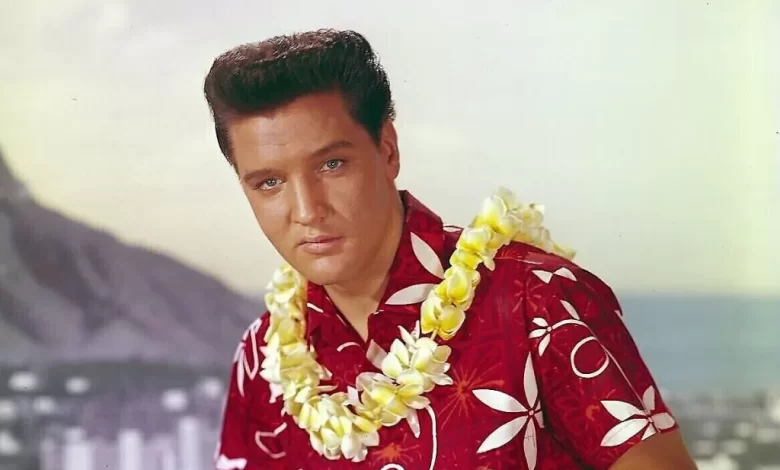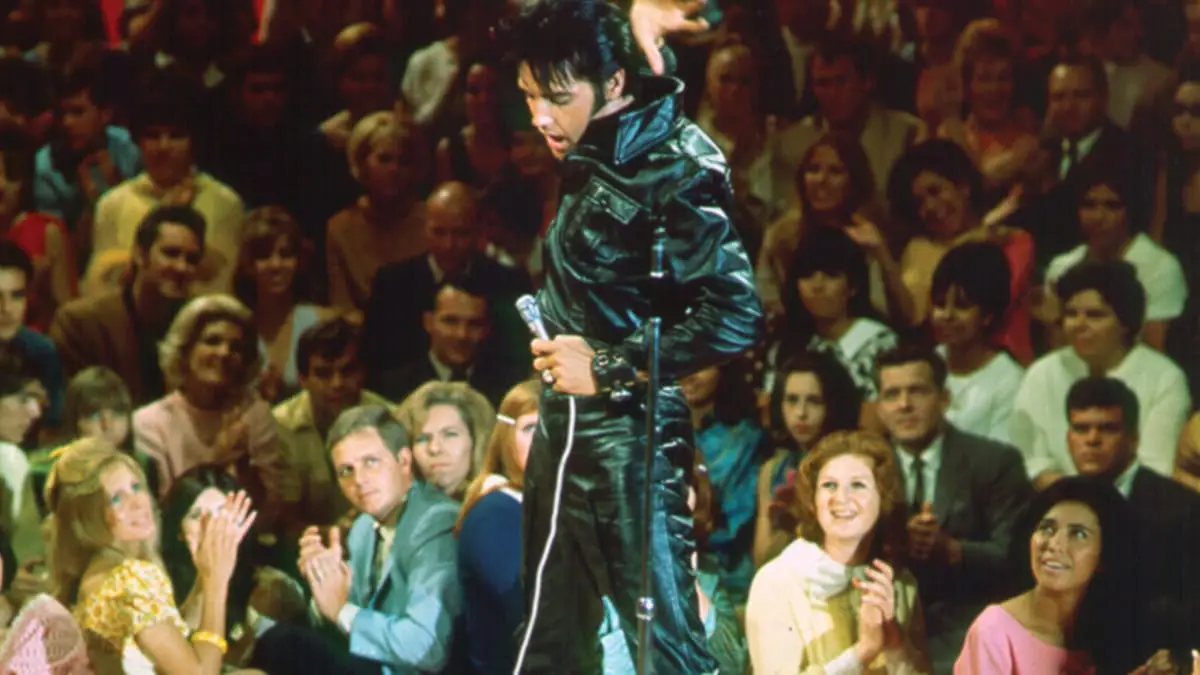Unlocking the Magic of Elvis’ 68 Comeback Special If I Can Dream

Elvis 68 comeback special if i can dream, also known as the King of Rock and Roll, left an indelible mark on the music industry with his iconic voice, electrifying performances, and larger-than-life persona. One of his most memorable moments in his career was the 68 Comeback Special, a televised musical event that marked his return to the spotlight after years of focusing on movies rather than live performances. Among the many legendary performances in the special, one song stands out in particular – ‘If I Can Dream’.
In this blog post, we will dive into the magic of Elvis’ 68 Comeback Special and how ‘If I Can Dream’ played a significant role in shaping not only his career but also pop culture as a whole. From exploring the social issues addressed in the song to analyzing its impact on Elvis’ image, we will uncover the depth and brilliance behind this timeless performance.
Elvis 68 comeback special if i can dream
The 68 Comeback Special, also known as the Singer Presents...Elvis, was a televised event that aired on December 3, 1968. It marked Elvis’ return to live performances after eight years of focusing on making movies such as ‘Blue Hawaii’ and ‘Viva Las Vegas’. The special featured a mix of live performances and pre-recorded segments, showcasing Elvis’ versatility as an artist.

The special was a massive success, attracting over 42% of the television audience at the time and solidifying Elvis’ reign as the King of Rock and Roll. It also marked a turning point in his career, as he returned to his musical roots and proved that he was still a force to be reckoned with in the music industry.
The Impact of Elvis’ Comeback Special on Pop Culture
The 68 Comeback Special not only brought Elvis back into the limelight but also had a significant impact on pop culture. The special was a nostalgic trip for fans who had missed seeing Elvis perform live, and it introduced a new generation to his iconic music.
Moreover, the special also showcased Elvis’ versatility as an artist, as he performed a mix of his classic hits and newer songs like ‘Guitar Man’. This proved that Elvis could adapt to changing musical trends and remain relevant in the ever-evolving music industry.

The special also paved the way for future televised concerts and music specials, becoming a blueprint for many artists to follow. It set the bar high for live performances, with its electrifying energy and stage presence, making it one of the most influential events in pop culture history.
Analyzing Elvis 68 comeback special if i can dream in the 68 Comeback Special
Among the many iconic performances in the 68 Comeback Special, ‘If I Can Dream’ holds a special place. Written by Walter Earl Brown, the song was a powerful anthem that captured the hopeful sentiments of the late 1960s. Elvis’ rendition of the song added a whole new level of emotion and depth, making it one of his most memorable performances.
Elvis’ performance of ‘If I Can Dream’ was a perfect blend of his signature rock and roll style and his gospel roots. He delivered the song with raw emotion, showcasing his vocal range and ability to convey powerful messages through music.
How Elvis Used ‘If I Can Dream’ to Address Social Issues in the 68 Comeback Special
At the time of the 68 Comeback Special, the United States was facing social unrest and political turmoil, with the Civil Rights Movement at its peak. In this context, Elvis’ performance of ‘If I Can Dream’ took on a whole new meaning, becoming a symbol of hope and unity.

By using heartfelt lyrics and powerful vocals, Elvis addressed the issues of racial inequality and social injustice, making a bold statement with his performance. The song’s lyrics, “We’re lost in a cloud / With too much rain / We’re trapped in a world / That’s troubled with pain”, resonated with the audience and served as a call to action for change.
Through this performance, Elvis used his platform and influence to shed light on important social issues, showcasing his deep understanding of the power of music to create change.
The Evolution of Elvis’ Image in the 68 Comeback Special
Aside from addressing social issues, Elvis’ performance of ‘If I Can Dream’ also marked a significant shift in his image. After years of portraying a wholesome, clean-cut persona in his movies, the special allowed him to embrace his rock and roll roots and showcase a more rebellious side.
His black leather outfit, styled after Marlon Brando’s character in ‘The Wild One’, and his edgier stage presence showed a new side of Elvis that fans had never seen before. This helped to solidify his status as a cultural icon and paved the way for future artists to explore their own unique styles and personas.
Exploring the Significance of ‘If I Can Dream’ in Elvis’ Career
While ‘If I Can Dream’ was a powerful performance in the 68 Comeback Special, it also holds great significance in Elvis’ career as a whole. The song became one of his most iconic hits, reaching number 12 on the Billboard Hot 100 chart, and has remained a fan favorite for decades.

Moreover, the song marked a turning point in Elvis’ musical style, as he started incorporating more meaningful and socially conscious songs into his repertoire. This not only showcased his growth as an artist but also cemented his place as a pioneer in using music to address societal issues.
Behind the Scenes of the Iconic 68 Comeback Special Performance of ‘If I Can Dream’
Behind every successful performance, there is a team of talented individuals who work tirelessly to bring the artist’s vision to life. For Elvis’ performance of ‘If I Can Dream’ in the 68 Comeback Special, the creative genius behind the production was director Steve Binder.
Binder and his team worked closely with Elvis to create a memorable performance that would capture the essence of the song and its message. They also incorporated innovative camera techniques, such as using handheld cameras on stage, to bring a sense of intimacy to the performance.

Aside from the technical aspects, the team also had to navigate the challenges of filming a live performance in front of an audience. This added pressure only added to the overall energy and intensity of the performance, making it a truly unforgettable experience.
The Influence of ‘If I Can Dream’ on Elvis’ Legacy
The impact of ‘If I Can Dream’ extended beyond just Elvis’ career and the 68 Comeback Special. The song has since become an integral part of his legacy, often cited as one of his most powerful and poignant performances.

The song’s message of hope and unity continues to resonate with audiences across generations, making it a timeless classic. It also stands as a testament to Elvis’ legacy as an artist who used his platform to address important social issues and inspire change through music.
Comparing Elvis’ Original Recording of ‘If I Can Dream’ to His 68 Comeback Special Performance
While ‘If I Can Dream’ was first recorded by Elvis in a studio setting for the soundtrack of his movie ‘The Trouble with Girls’, it was his performance in the 68 Comeback Special that truly brought the song to life.
In the original recording, Elvis’ vocals are more subdued and lack the raw emotion and power that he brings to the live performance. The studio version also lacks the backing vocals and live instrumentation that add depth and intensity to the song.
Moreover, the live performance allows Elvis to fully embody the message of the song, making it a truly powerful and unforgettable experience. It showcases his ability to connect with his audience and convey emotion through his music in a way that cannot be captured in a studio recording.
The Enduring Relevance of Elvis’ 68 Comeback Special and ‘If I Can Dream’
Over 50 years since its original airing, the 68 Comeback Special and Elvis’ performance of ‘If I Can Dream’ continue to captivate audiences and hold a special place in pop culture history. The special is often cited as a pivotal moment in Elvis’ career, marking his return to live performances and solidifying his status as the King of Rock and Roll.

Moreover, the message of hope and unity in ‘If I Can Dream’ remains just as relevant today as it did in 1968. Its timeless message continues to inspire and resonate with audiences, making it a testament to the power of music and its ability to transcend time and generations.
Conclusion
Elvis Presley’s 68 Comeback Special was a groundbreaking event that not only marked his return to live performances but also had a significant impact on pop culture. Among all the iconic performances in the special, ‘If I Can Dream’ stands out for its powerful message and unforgettable delivery.
Through this performance, Elvis addressed social issues, showcased his evolution as an artist, and solidified his place in music history. From the behind-the-scenes work of director Steve Binder and his team to the enduring relevance of the song, ‘If I Can Dream’ will always hold a special place in the hearts of Elvis fans and music lovers alike.
History of Elvis’ 68 Comeback Concert
The Impact of Elvis’ 68 Comeback Special Songs, History, and Legacy
